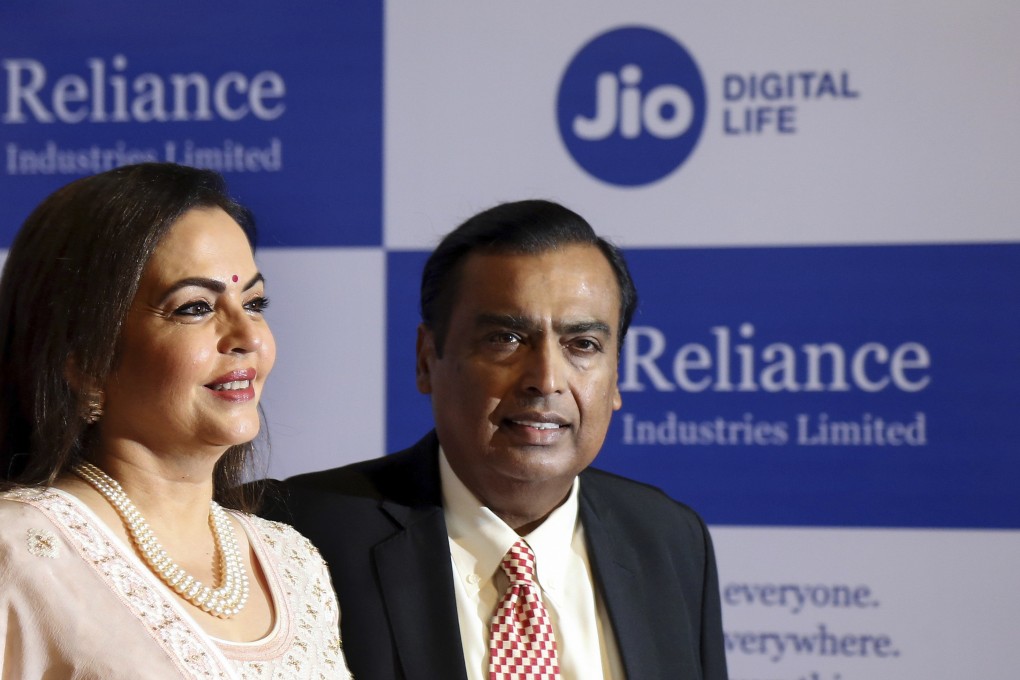Google’s smartphone tie-up with Indian billionaire Ambani faces supply chain constraints and culture clashes
- Mukesh Ambani’s Reliance Industries is targeting a much smaller launch of a locally assembled Google smartphone than the hundreds of millions of units it wanted
- Supply chain constraints have hit production and Reliance’s top-down operating model has clashed with Google’s more self-directed engineers

Billionaire Mukesh Ambani’s plan to conquer the Indian market with a locally assembled Google-powered smartphone is facing headwinds, with supply-chain disruptions and rising component prices suppressing production volumes, people familiar with the matter said.
Ambani’s Reliance Industries originally envisioned sales in the hundreds of millions in the first years for the inexpensive device but now targets a small fraction of that at launch, the people said. The co-branded phone is set for its unveiling at the conglomerate’s June 24 shareholder meeting, followed by an official debut as early as August or September, the people said, asking not to be named as the plan isn’t public.
The tycoon wants to remake the world’s fastest-growing smartphone market much the way he did wireless services – with aggressive pricing. But any delay in the effort would be a significant setback for Reliance and its Indian manufacturing partners. Chinese rivals like Xiaomi, Oppo and OnePlus have established their brands and set up local manufacturing facilities as they pursue the same audience of consumers upgrading from basic 2G devices.
Engineers at Reliance and Alphabet Inc’s Google have combined forces to tailor a device for the technology-hungry but price-sensitive country whose internet users are expected to surpass 900 million by 2025. They’ve created a hardware design and a version of the Android operating system that can deliver a high-end experience without expensive materials, according to the people. But sourcing the components has proved a hurdle after the coronavirus pandemic boosted demand for electronics globally and led to shortages.

Cultural differences at Reliance and Google have also surfaced during the process, with the Indian company relying on a top-down operating model while the US engineers are more self-directed, the people said. That’s resulted in last-minute decision making and calls in the middle of the night, in contrast to Google’s usual preference for planning things months in advance.
